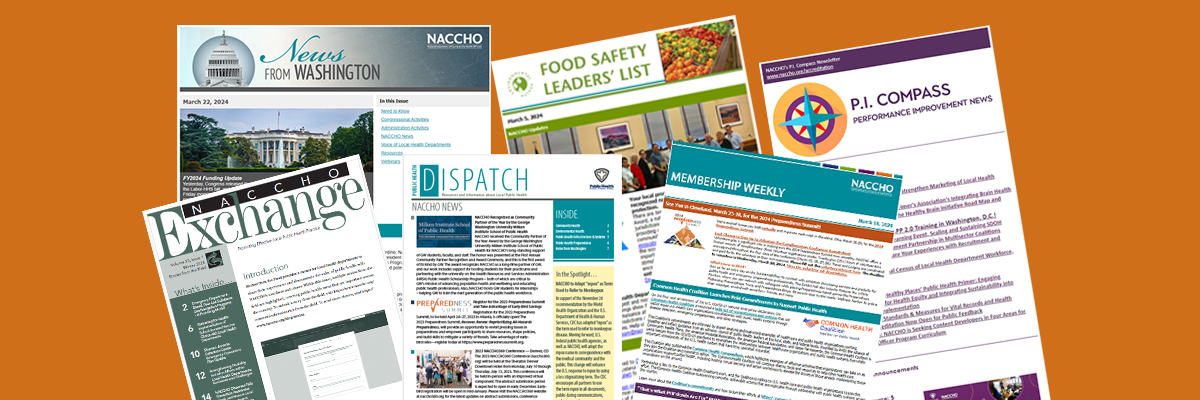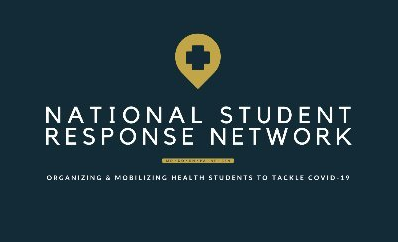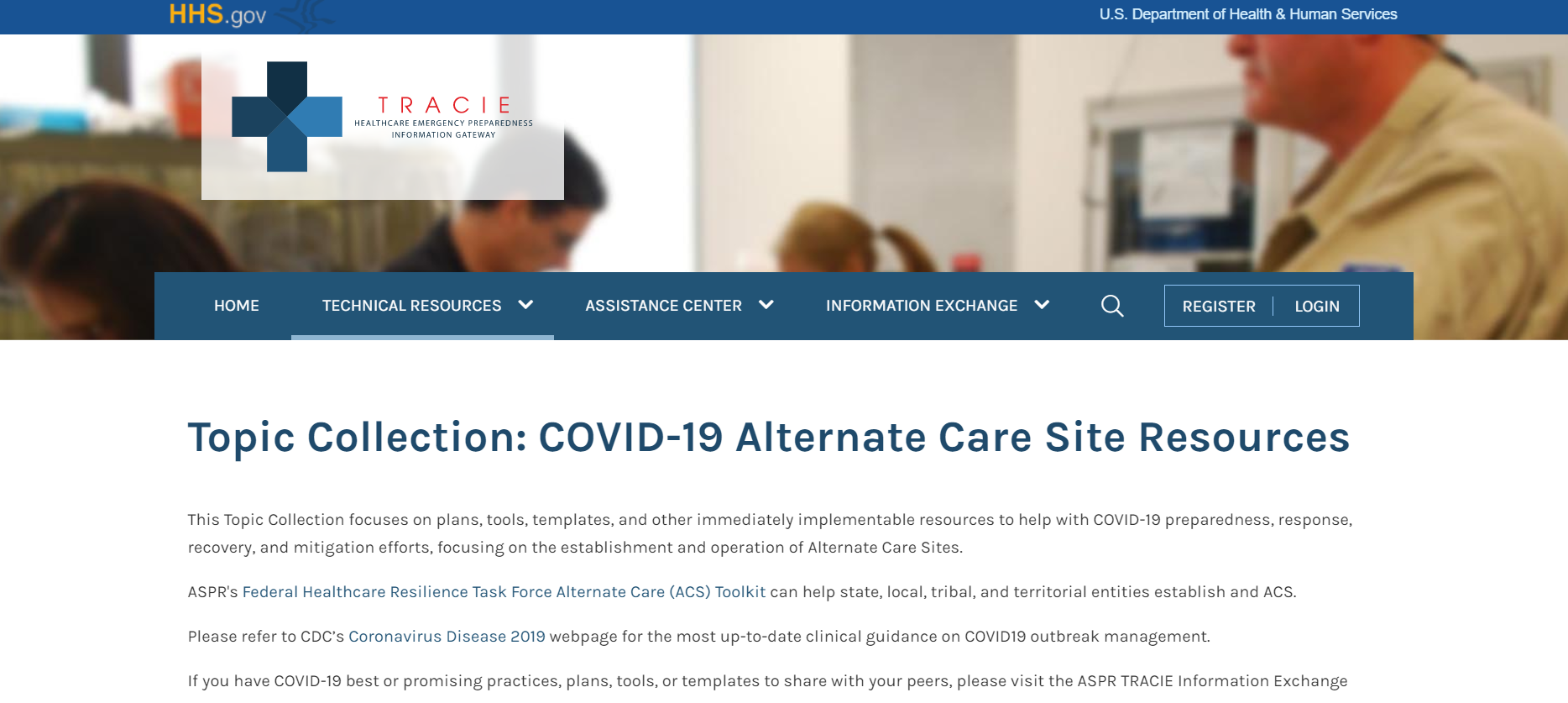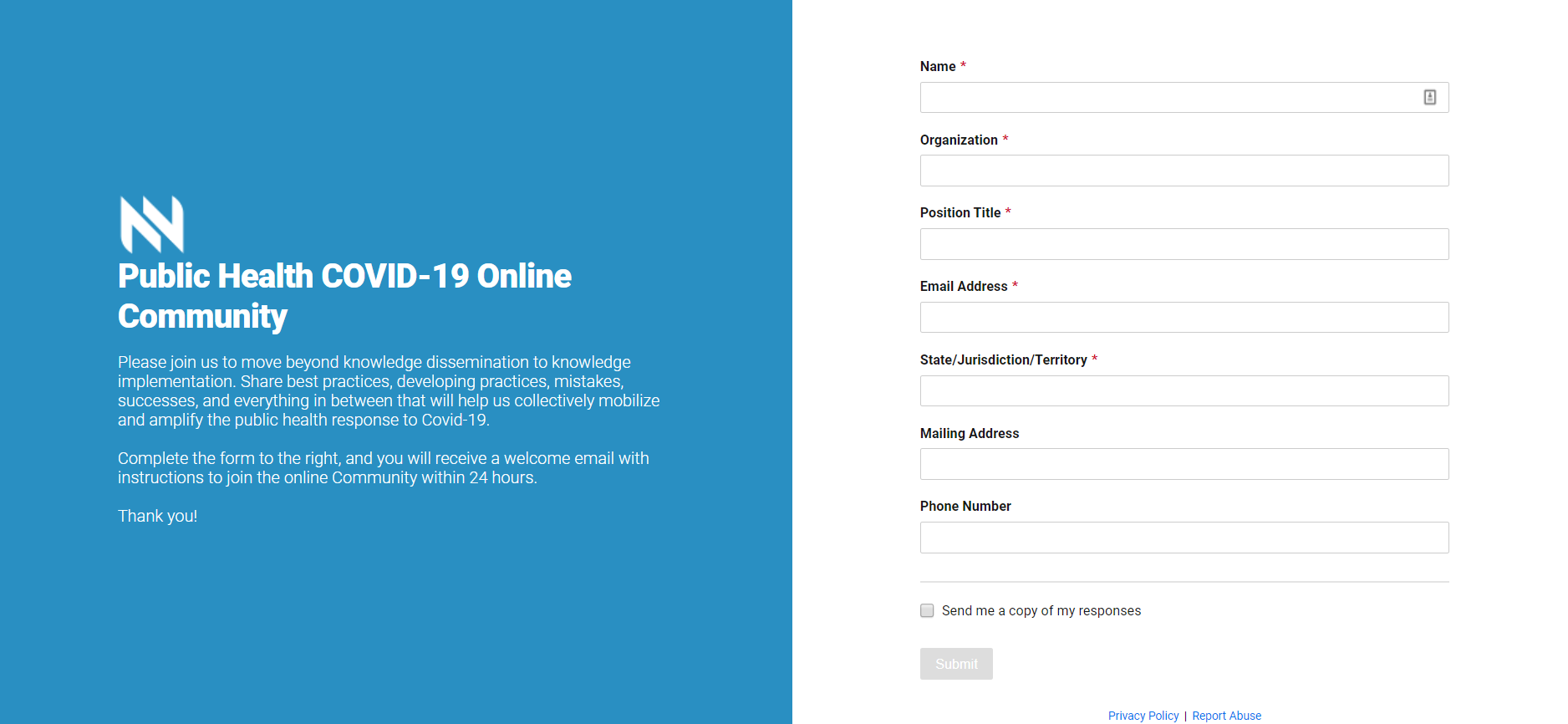Popular Categories
MRC Units Use Psychological First Aid to Address Mental Health in Disasters
By Nora Marino, Health Policy Scholar at NACCHO and current Master in Public Health candidate at the University of Minnesota School of...
Nov 17, 2015 | Mary Hodges
Hurricane and Flooding Preparedness Resources
The arrival of hurricane season and potential impact of Hurricane Joaquin serve as a reminder that the 2,800 local health departments...
Aug 28, 2015 | Admin
Coordinated Response to Flooding and the Mudslide in Washington State: An Interview...
This is part of a series of interviews with local health department staff who will present at the 2015 Preparedness Summit. Therese...
Mar 04, 2015 | Nicole Dunifon
The White House Launches Disasters.Data.Gov
The White House has launched disasters.data.gov, a public resource to foster collaboration and the continual improvement of...
Dec 17, 2014 | Admin
Climate Change and Human Health: Impacts, Vulnerability, and Public Health
Human health is directly affected by natural disasters such as hurricanes, earthquakes, flooding, and heat; it is also indirectly...
Oct 07, 2014 | Chris Mills
The Implications for Public Health when “Weird Weather” becomes the New Normal
Sep 16, 2014 | Guest Author
EPA Releases Clean Power Plan Proposal to Regulate Carbon Emissions from Power Plants
On June 2, the U.S. Environmental Protection Agency (EPA) announced the Clean Power Plan, a proposal to reduce carbon emissions from...
Jun 02, 2014 | Frances Bevington
Mid-Atlantic Kicks Off Severe Weather Preparedness Week with Rare March Snowstorm
Here in Washington, D.C., a rare late-winter snowstorm is currently wrecking havoc at the start of Severe Weather Preparedness week...
Mar 03, 2014 | Stacy Stanford
Integrating Extreme Weather Events into Preparedness Planning
Authors: Resham Patel, MPH, Senior Program Analyst and Stacy Hosler, MSPH, Program Analyst; Public Health Preparedness, NACCHO In 2011...
Sep 08, 2013 | Resham Patel
MRC Units Use Psychological First Aid to Address Mental Health in DisastersBy Nora Marino, Health Policy Scholar at NACCHO and current Master in Public Health candidate at the University of Minnesota School of Public Health The importance of incorporating the mental health needs of a community and individuals into emergency and disaster response is gaining attention. During and after a disaster, many people are not only […] Nov 17, 2015 | Mary Hodges |
Hurricane and Flooding Preparedness ResourcesThe arrival of hurricane season and potential impact of Hurricane Joaquin serve as a reminder that the 2,800 local health departments across our nation stand ready to help protect residents and families from all sorts of natural disasters and to play a vital role in any recovery efforts. Local health departments are life-saving first responders […] Aug 28, 2015 | Admin |
Coordinated Response to Flooding and the Mudslide in Washington State: An Interview with Therese QuinnThis is part of a series of interviews with local health department staff who will present at the 2015 Preparedness Summit. Therese Quinn, Medical Reserve Corps Coordinator, Snohomish Health District, previews her session, “Coordinated Response to Washington State Route 530 Flooding and Slide in Washington State.” At this session, Therese will be joined by John […] Mar 04, 2015 | Nicole Dunifon |
The White House Launches Disasters.Data.GovThe White House has launched disasters.data.gov, a public resource to foster collaboration and the continual improvement of disaster-related open data, free tools, and new ways to empower survivors, first responders, and all levels of government with critical information and resources. Some features of the site include: “Types of Disasters” Landing Pages: Categorizes open data sets, […] Dec 17, 2014 | Admin |
Climate Change and Human Health: Impacts, Vulnerability, and Public HealthHuman health is directly affected by natural disasters such as hurricanes, earthquakes, flooding, and heat; it is also indirectly affected through increased transmission and geographic expansion of diseases spread by insects, compromised air, water, and food quality. For example, bacterial counts in the water surrounding coastal communities tend to spike dramatically following heavy rainfall. Not... Oct 07, 2014 | Chris Mills |
The Implications for Public Health when “Weird Weather” becomes the New NormalSep 16, 2014 | Guest Author |
EPA Releases Clean Power Plan Proposal to Regulate Carbon Emissions from Power PlantsOn June 2, the U.S. Environmental Protection Agency (EPA) announced the Clean Power Plan, a proposal to reduce carbon emissions from existing power plants over the next fifteen years. Once implemented, the proposed federal regulations would be the first to place limits on carbon emissions from existing power plants. The plan provides leadership and a […] Jun 02, 2014 | Frances Bevington |
Mid-Atlantic Kicks Off Severe Weather Preparedness Week with Rare March SnowstormHere in Washington, D.C., a rare late-winter snowstorm is currently wrecking havoc at the start of Severe Weather Preparedness week (March 2-8), a public education effort organized by the National Oceanic Atmospheric Administration’s (NOAA) National Weather Service and the Federal Emergency Management Agency (FEMA) aimed at improving the way people prepare for and respond to severe weather. Mar 03, 2014 | Stacy Stanford |
Integrating Extreme Weather Events into Preparedness PlanningAuthors: Resham Patel, MPH, Senior Program Analyst and Stacy Hosler, MSPH, Program Analyst; Public Health Preparedness, NACCHO In 2011 and 2012, the United States experienced 25 extreme weather events—storms, floods, droughts, heat waves, and wildfires—that each caused at least $1 billion in damages.[1] These events resulted in a total price tag of over $174 billion […] Sep 08, 2013 | Resham Patel |

Subscribe Today
Sign Up for the E-mail Digests
Create an account or login to MyNACCHO and go to "My Subscriptions."
SUBSCRIBE NOW



